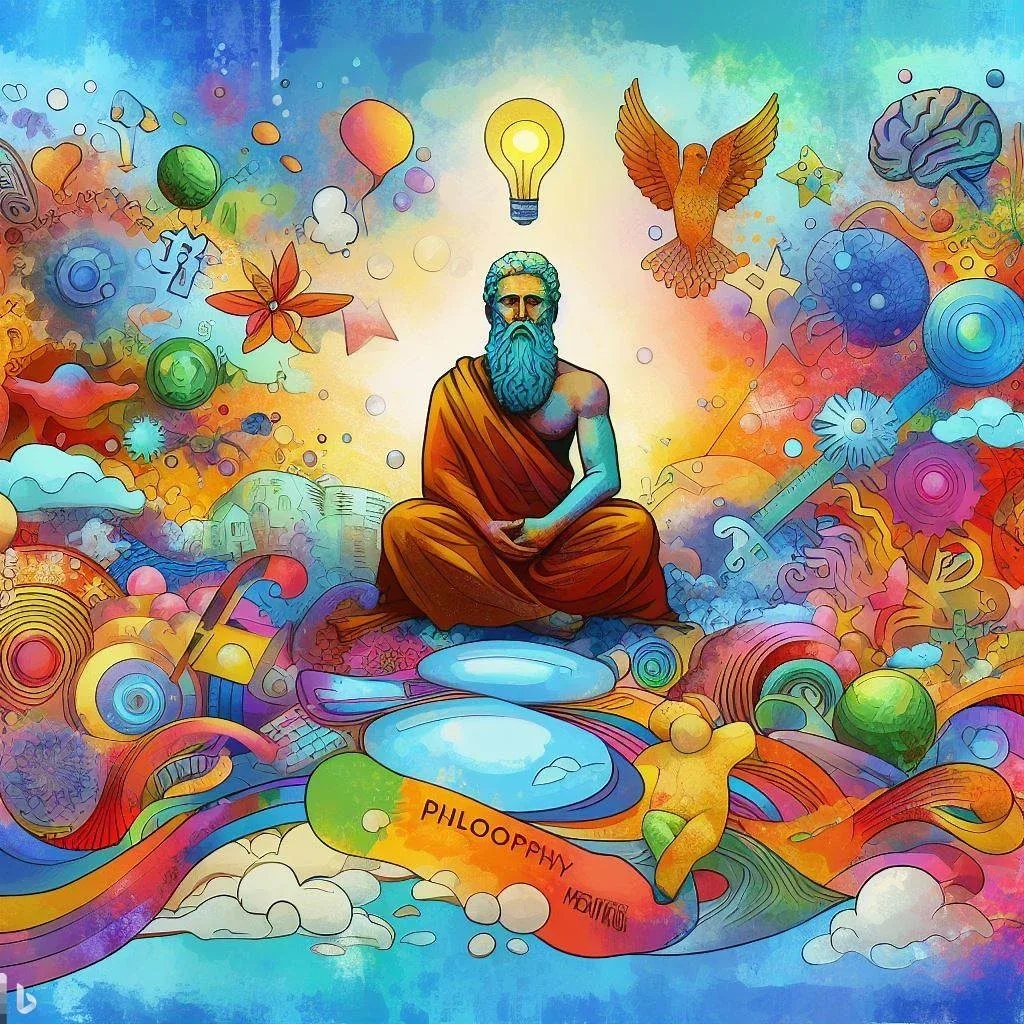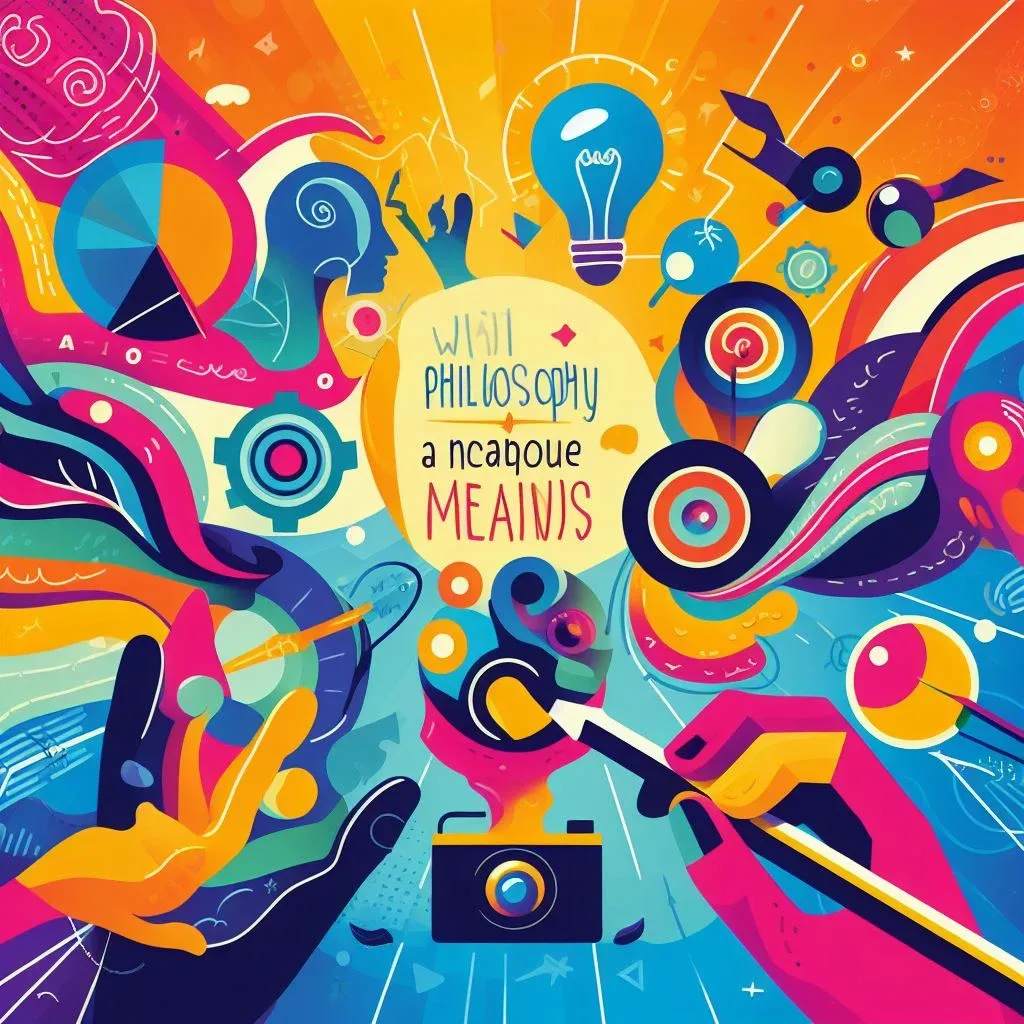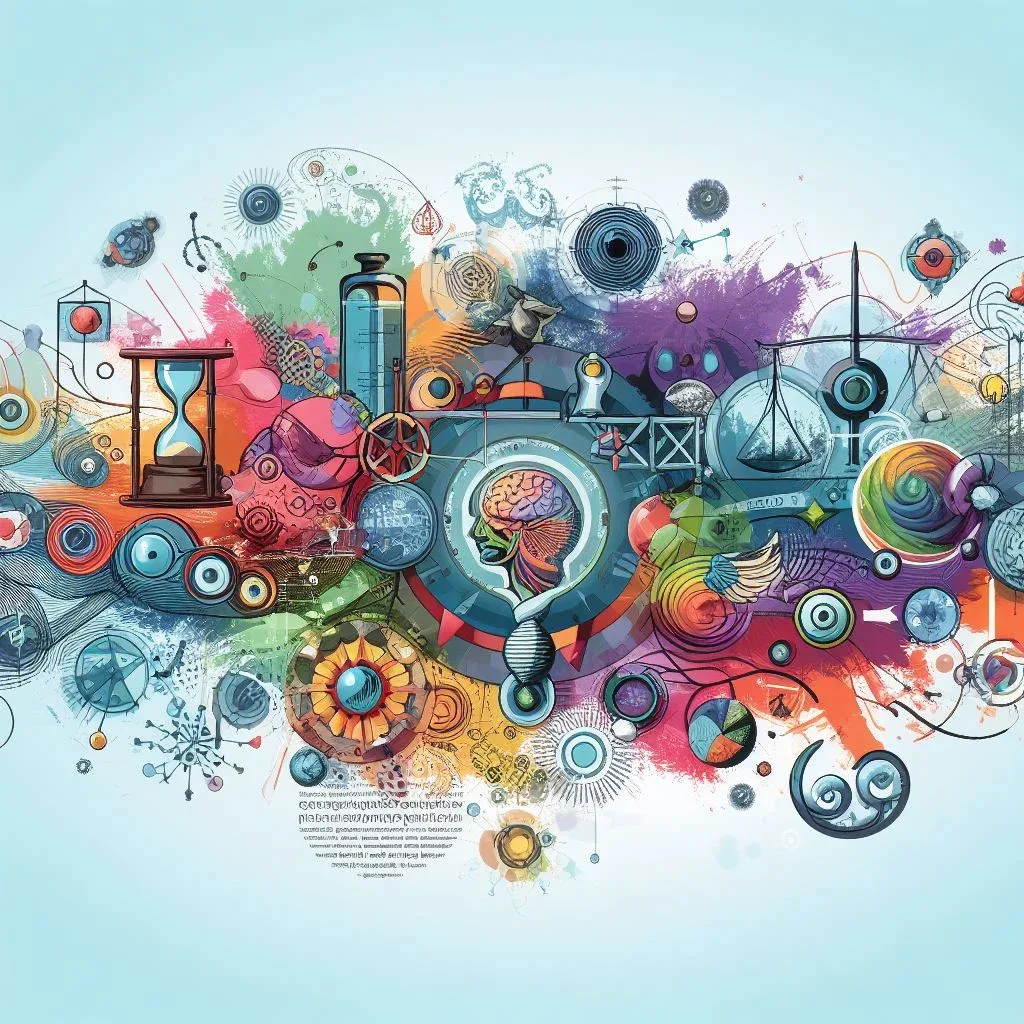Introduction: The Search for the Meaning of Philosophy
The word “philosophy” is often heard, but what does it really mean? What is the purpose of philosophy and how does it impact our lives? In this article, we will embark on a journey towards a deeper understanding of the meaning of philosophy, exploring its origins, purposes and influences in our modern world.

The Origin of the Word “Philosophy”
Before we delve into the deeper layers of philosophy, it is crucial to understand the origin of the word. “Philosophy” has roots in ancient Greek and is made up of two words: “philos”, which means “love”, and “sophia”, which translates as “wisdom”. Therefore, philosophy can be seen as the “love of wisdom”.
The Purpose of Philosophy: Search for Knowledge and Meaning

Philosophy, at its essence, is a never-ending search for knowledge and meaning. It seeks to understand the fundamental questions of existence, reality and morality. Some of the main purposes of philosophy include:
1. Questioning Reality
Philosophy seeks to question reality in all its dimensions. It investigates the nature of existence, the purpose of life, and the essence of truth.
2. Explore Morality
Morality is a central theme in philosophy. It seeks to understand what is right and wrong, how to live an ethical life and how to evaluate human behavior.
3. Reflect on the Human Condition
Philosophy is also dedicated to reflecting on the human condition. She seeks to understand the human being in its entirety, from emotions to reason, culture and society.
4. Seek Wisdom
The ultimate purpose of philosophy is to seek wisdom. It invites us to question, reflect and thus find a deeper understanding of the world around us.
The Evolution of Philosophy Throughout History
Philosophy has a rich and diverse history, with roots dating back to antiquity. Some of history's most notable philosophers include Socrates, Plato, Aristotle, Immanuel Kant, and Jean-Jacques Rousseau. Each contributed to the evolution of philosophy, addressing crucial questions and shaping the foundations of our understanding of the world.
Philosophy in the Modern World

In the modern world, philosophy continues to play an important role. It influences ethics, politics, science and technology. Many contemporary problems, such as ethical dilemmas in medicine and artificial intelligence, are approached through a philosophical lens.
Philosophy also plays a key role in education, encouraging critical thinking and deep analysis. It helps us understand the historical and social context in which we live, as well as make informed and ethical decisions.
Philosophy in Everyday Life
Although philosophy may seem distant to some, its influences are evident in our everyday lives. It helps us question our beliefs and values, make ethical decisions and understand the complexity of the world around us.
Conclusion: The Deep Meaning of Philosophy
Philosophy is much more than a distant academic discipline. It is an ongoing search for knowledge and meaning, a deep exploration of the fundamental questions of life and existence. Its influence spans history, culture, ethics and politics, shaping our understanding of the world.
Through philosophy, we are invited to question, reflect and seek wisdom, strengthening our ability to understand the world and make informed and ethical decisions. So the next time we come across the word “philosophy
“, we can remember that it represents the constant search for “love of wisdom” and invites us to explore the depths of human understanding.
Frequently Asked Questions about “What Philosophy Means”
In this FAQ, we will answer the most common questions related to the meaning of philosophy and its importance in understanding the world and existence.

1. What is philosophy?
Philosophy is a constant search for knowledge and meaning. It involves deep reflection on fundamental questions of existence, morality and reality.
2. What is the origin of the word “philosophy”?
The word “philosophy” has roots in ancient Greek, being composed of “philos” (love) and “sophia” (wisdom), which makes it the “love of wisdom”.
3. What is the purpose of philosophy?
The purpose of philosophy is to question reality, explore morality, reflect on the human condition and seek wisdom. It promotes critical thinking and the search for deep understanding.
4. How has philosophy evolved throughout history?
Philosophy has a long history that includes notable figures such as Socrates, Plato, Aristotle and many others. Each period in history has contributed to the evolution of philosophy, addressing crucial questions and shaping our understanding of the world.
5. What is the role of philosophy in the modern world?
Philosophy continues to influence ethics, politics, science, and technology in the modern world. It is fundamental in education, encouraging critical thinking and in-depth analysis.
6. How does philosophy affect our everyday lives?
Philosophy influences our everyday lives by helping us question our beliefs and values, make ethical decisions, and understand the complex world in which we live.
7. Is philosophy just for academics?
No, philosophy is for everyone. It is a discipline that invites everyone to explore deep questions and improve critical thinking, regardless of academic background.
8. Does philosophy have a practical role?
Yes, philosophy has a practical role in strengthening our ability to understand the world, make informed and ethical decisions, and promote self-knowledge.
9. Why is philosophy important?
Philosophy is important because it helps us explore fundamental questions, seek wisdom, and understand the complexity of the world. It shapes our understanding of the world and promotes the constant search for knowledge and meaning.






